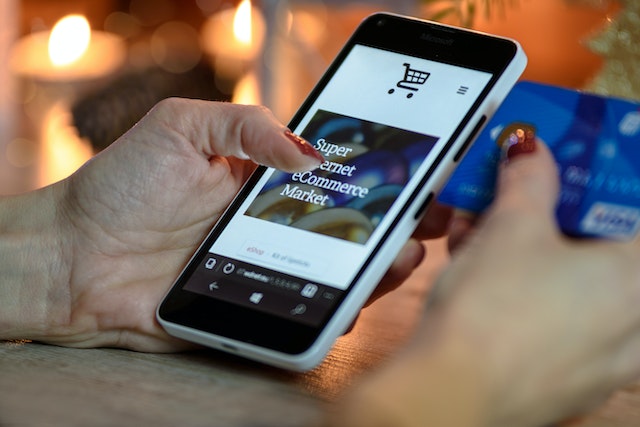|
Back in the day, having a website was all the craze; businesses that had a website were the big players and people who could afford to pay a huge sum of money. Fast-forward 20 years or so, and a business that doesn't have a website is considered to be the odd one out. Anybody with a laptop, an internet connection and basic technical knowledge can hop on the internet and create a very good-looking website. Jumping ahead another couple of decades, you see Steve Jobs on the stage introducing the iPhone, and people go mad. In less than a year, the app store was launched with 500 apps, and the journey began. Apps are generally viewed as a luxurious addition to the business — a "We'd love to have one! But we have more important things to focus on right now" type of addition. But it's proving more and more essential for a business to have a mobile application. The global mobile app development market size was valued at USD $197.2 billion in 2021. It is expected to reach around USD $583.03 billion growing at a CAGR of 12.8% during the forecast period (2022–2030). The substantial growth of the mobile app market signifies a clear trend: Mobile apps are not merely luxury additions for businesses anymore, but rather critical tools for reaching and interacting with customers. Ignoring this trend could mean missing out on potential opportunities. So, if you want to get your fair share of this huge sum, developing a mobile application is no longer optional. Boosting client interactions: The power of increased customer engagement through mobile apps How often is it that you open your browser on your smartphone and go to a website as opposed to opening your smartphone and just tapping on an app? The contrast is stark. Everybody is on their phones nowadays, specifically on various apps, and your business app could easily be one of those apps. I'm not going to ramble on about how push notifications opt-in rates on the Android OS range from 49% to 95%, with medium equal to 81% — and on the iOS side, they range from 29% to 73%, with medium equal to 51%. But I am going to tell you how an app could easily deliver personalized content to each and every user depending on their behavior: Someone added something to a cart and left without buying it? Send them a reminder to complete the checkout. User X's birthday is today? Send them a complementary discount. Someone expressed interest on several occasions in your posts on the northern lights in Iceland? Send them a trip recommendation this September. Elevating your brand: The impact of mobile apps on visibility and recognition Having a mobile app is essentially free advertising. Every smartphone out there is considered a potential free spot to advertise your business. Think about it this way: Every time your client opens their smartphone, they will see your application. It's like you're psychologically stamping your business in their minds, and what is the result? In the first instance that they require a service that you provide or a product that you sell, you will be the one that they contact. Another aspect of visibility and brand recognition is your brand's colors, designs and even tone of voice. The use of these elements within the app reinforces your brand in the client's mind. And last but not least, if your app contains modern features, such as an easy-to-use interface, a messenger for instant customer support, the ability to personalize content and timely push notifications, your app and your business will be held in high esteem for delivering quality service and being a customer-centric company. Today's business landscape has evolved to such an extent that having a mobile app has shifted from a luxury to a necessity. Mobile apps are essential in enhancing customer engagement. Since they are more readily accessible than websites on a smartphone, and with features like push notifications and personalization, businesses can deliver tailored content directly to their consumers, leading to increased engagement. Having a mobile app provides a significant boost to a brand's visibility and recognition. The continual presence of the app on a user's device, combined with the consistent use of brand colors, design and voice within the app, imprints the brand in the user's mind. Incorporating modern features and a user-friendly interface into the app also positions the business as a quality service provider, elevating its standing in the minds of consumers. In the evolving digital era, having a mobile app is not just an optional add-on but a crucial business tool that offers significant benefits in terms of customer engagement, brand visibility and market share. Source:Entrepreneur.com Image Credit: Pexels.com | Photo by PhotoMIX Company
0 Comments
Leave a Reply. |
Membership is open to businesses and organizations interested in increasing visibility and brand awareness in Westchester County and surrounding areas.
Archives
May 2024
Categories
All
|


 RSS Feed
RSS Feed